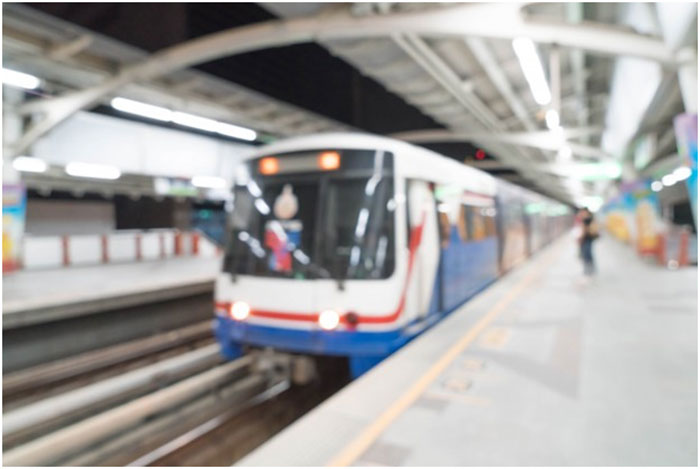
Career Overview
The public transit system is run by individual cities. It provides transportation for the public. In most cities public transportation consists of buses and taxis. Some cities, such as New York, Chicago, and Washington, DC, have subways too. And some cities, such as San Francisco and New Orleans, have trolleys.
Drivers & Operators
Bus drivers and subway trolley, and light-rail operators pick up their buses or cars at the terminals where they are kept. They inspect them before beginning a trip.
Drivers must be familiar with the stops on their route. Most public transit drivers do not carry money and cannot give change. This is to limit the possibility of their being robbed.
Subway, trolley, and light-rail operators perform similar jobs. They must know how to operate track vehicles, as well as be alert to signals along the route.
Drivers and operators must be at least twenty-one years old and in good physical condition. A high school diploma is preferred, and a good driving record is essential. Most states require transit drivers and operators to have a special chauffeur's license. New workers are trained to drive a bus or operate a trolley or subway through classroom work and by operating the vehicle. They learn current rules and regulations for the job. All drivers must then pass a written and operating exam to obtain a commercial driver's license, or CDL.
Transit workers usually work in shifts. They also may be required to work weekends or holidays. Some may work a swing shift. This means that they work for several hours in the morning, have a long break, and then work several hours more. Most drivers belong to a union that negotiates their contract with the transit system.
The ability to work with the public is a must. Buses, subways, and trolleys run in all types of weather. They are constantly involved in rush hour traffic. Patience and good mechanical skills are valuable personal traits for this job.
The salary range is from $15,000 to $40,000 a year. Vacation days, health and life insurance, sick days, and retirement are some of the benefits drivers receive. Many drivers work their way up to supervisory positions. Supervisors make certain that buses and trolleys run on time.
Other Transit Careers
A variety of careers are available within the transit system. Many of these jobs offer some benefits such as health and life insurance, retirement plans, and paid sick and vacation days.
School Bus Drivers
School bus drivers transport students to and from school. They usually work swing shifts. They begin early in the morning and finish late in the afternoon. They may also drive students to field trips, sporting events, or other special activities.
All school bus drivers must have a CDL (certified driver's license), a good driving record, and be in good physical condition. Most drivers learn specifics about operating the bus through on-the-job training with experienced drivers. Wages are usually $10 to $13 an hour.
Special Service Drivers
Special service drivers use buses or vans to transport passengers or products, usually on a regular schedule but sometimes on an on-call basis. Drivers who transport disabled adults or chronic care patients, or who deliver Meals on Wheels (meals for those who cannot prepare their own food), need to have compassion and stamina. Drivers for bookmobiles or sightseeing buses are expected to be enthusiastic and informed.
This work may be full-time or part-time as well as seasonal. On-the-job training is provided and a CDL is required. Wages are usually $10 to $15 an hour.
Bus Mechanics
Bus mechanics inspect, maintain, and repair buses and their engines. Mechanics work primarily in bus garages, but sometimes they must travel to repair disabled buses.
Bus mechanics usually have a high school diploma. Knowledge of bus engines can be learned through technical schools. Some training is on-the-job and a CDL is usually required. Wages are set at $12 to $25 an hour.
Bus Dispatchers
Bus dispatchers are responsible for the arrival and departure of buses from a terminal. They stay in contact with the drivers to answer questions or solve problems that drivers may have along the route. Most dispatchers begin their careers as drivers. A high school diploma is preferred as well as a CDL. Wages usually begin at $8 to $15 an hour.
Bus Ticket Agents
Bus ticket agents sell tickets and handle luggage. They provide information and assistance to passengers. Agents may receive a salary or may work at an hourly rate. The salary range is from $15,000 to $25,000 a year.
Subway Token Booth Clerks
Subway token booth clerks sell tokens for the subway. They also offer information and provide maps of the subway system to travelers. Clerks may be paid a salary or an hourly wage. The salary range is from $15,000 to $25,000 a year.
Managers
Managers oversee the company's workers and perform executive duties. A four-year college degree is usually required to be a manager, but some people may be promoted from jobs as drivers or mechanics. The salary range is from $30,000 to $65,000 a year.
Clerical Workers
Clerical workers keep track of records, personnel, and forms that must be completed during the course of the working day. For clerical workers, a high school diploma is preferred. Business, computer, or clerical experience is useful in getting a job in this field. Wages are usually $10 to $15 an hour.
Questions to Ask Yourself
1) What jobs require a commercial driver's license?
2) What are the public transit organizations in your area?
3) Would you mind working swing shifts?
Image Source: Freepik.com
